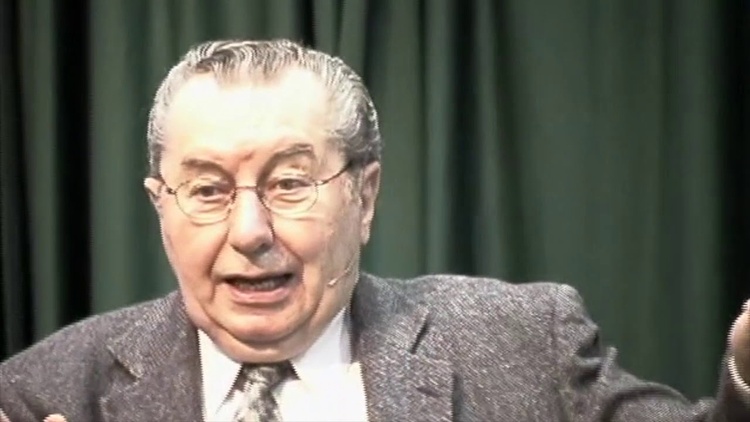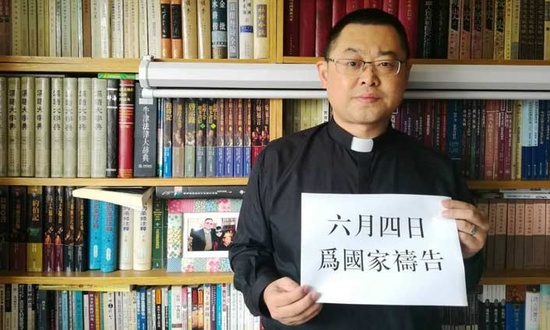Richard Wurmbrand’s Tortured for Christ influenced me profoundly as a young Christian. In Romania, guards tied prisoners to crosses and smeared them with human excrement. From our perspective, the perpetrators might have seemed beyond redemption; yet some of the guards who did these unspeakable acts saw the inexplicable love, devotion, and faith of the Christians they tortured.
Wurmbrand wrote, “I have seen Christians in Communist prisons with fifty pounds of chains on their feet, tortured with red-hot iron pokers, in whose throats spoonfuls of salt had been forced, being kept afterward from water, starving, whipped, suffering from cold—and praying with fervor for the Communists.”
Josef Tson, once the best-known pastor in Romania, was one such suffering saint. At a time when the Christian faith had become virtually illegal, he openly preached the gospel. Police threatened him repeatedly with imprisonment and arrest. In his sixties he studied at Oxford for his doctorate, writing a dissertation that became a book titled Suffering, Martyrdom, and Rewards in Heaven.
I opened the Scriptures with Josef in 1988, with a group of theologians discussing eternal rewards. Twenty years later, writing my book If God Is Good, I remembered his stories and insights and called him again, in order to share his insights with others. Josef explained to me how the belief that God doesn’t want His people to suffer once corrupted the Romanian church. In the interests of self-preservation, he said, they failed to speak out against injustice, tyranny, and the idolatry of turning men into gods. He recalls joining the crowd on the streets and crying, “Glory to Stalin.”
God convicted Josef. As a pastor he refused to glorify communist leaders and started to speak out boldly for Christ. Interrogators threatened him with death every day for six months. Finally he told them, “Your supreme weapon is killing. My supreme weapon is dying. My preaching will speak ten times louder after you kill me.”
Josef said, “During the time I was expecting to be crushed by the Romanian secret police interrogators, God became more real to me than ever before or after in my life. It is difficult to put into words the experience I had with God at that time. It was like a rapture into a sweet and total communion with the Beloved. God’s test for me then became the pathway to a special knowledge of the reality of God.”
Finally, in 1981, the Romanian government exiled him.
After facing much evil and nearly being martyred in Ceauşescu’s Romania, Josef told me, “This world, with all its evil, is God’s deliberately chosen environment for people to grow in their characters. The character and trustworthiness we form here, we take with us there, to Heaven. Romans and 1 Peter 3:19 make clear that suffering is a grace from God. It is a grace given us now to prepare us for living forever.”
He also told me he believed that 95 percent of Christians pass the test of adversity, while 95 percent fail the test of prosperity.
In the West, with our conspicuous prosperity and ease, Christianity’s popularity continues to shrink. In Africa, Asia, and South America, with much greater adversity and suffering, it continues to grow.
Josef Tson believes, “The gospel will never be spread without someone suffering.” He said our first question in suffering should not be, “Why?” but, “God, what do you want to do in the world through my suffering?”
Josef continues, “God achieves great things in the world through the one who accepts His way of suffering and self-sacrifice. In the end, however, it turns out that the greatest things are achieved in the sufferer himself. The one who sacrificially expects to be a blessing for others discovers that, in the final analysis, he is the one who has harvested the greatest blessings.”
Suffering can help us know God and prepare us to trade a shallow life not worth keeping for a deeper life we’ll never lose.
When interrogators worked Josef into exhaustion for ten hours a day, one of his persecutors made a strange statement: “Pastor Tson, when I interrogate people I am used to feeling their hatred for me. But you do not hate me. It has become a delight for me to be with you.”
Jesus saw our suffering as an opportunity to bring the gospel: “They will lay their hands on you and persecute you, delivering you up to the synagogues and prisons, and you will be brought before kings and governors for my name’s sake. This will be your opportunity to bear witness” (Luke 21:12–13, ESV).
Josef viewed his suffering as God’s means to accomplish God’s purpose. He told of guards coming to Christ while beating Christian prisoners, then confessing their faith and being imprisoned and tortured themselves. As a result, the gospel his persecutors tried to dismiss touched them instead.
Learn more about Josef, and watch this sermon clip to hear him speak about “The Holy Spirit's One Business for Believers”:




